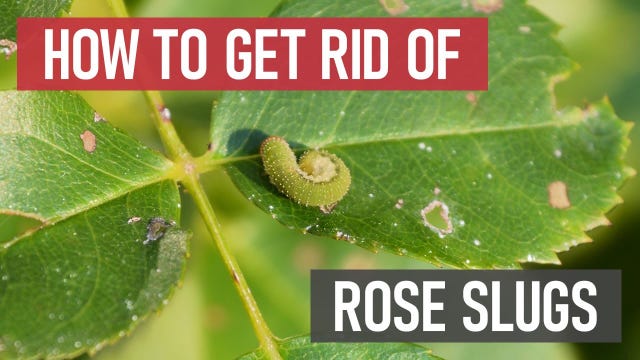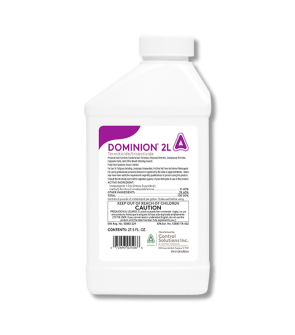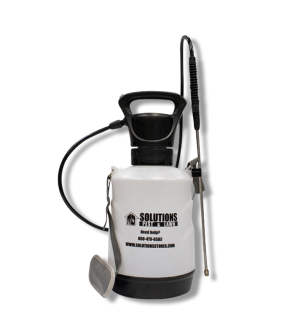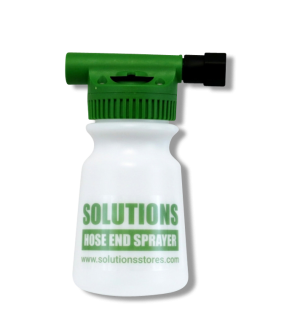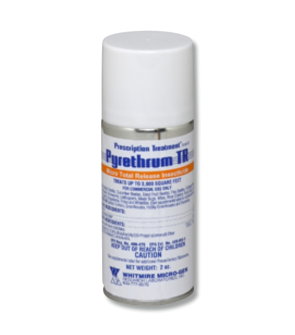Gain access to personalized product screening, the best pricing, rewards, and more!
Most Effective Products
Rose Slug Control: How to Get Rid of Rose Slugs
This page is an expert guide on getting rid of rose slugs off your property using the products and methods suggested by our experienced pest control specialists. Follow this guide and use the recommended products, and you will eliminate rose slugs, which is guaranteed.
If you have a garden or flower bed and notice holes in your rose leaves, you likely have rose slugs. Despite their name, rose slugs aren't slugs, but a type of sawfly larvae. Rose slugs like to feed on the leaves of rose shrubs, so if you are growing roses, your flowers could be at risk.
Rose slugs are a prominent issue in mid to late summer. Often, the damage done to the rose leaves is mistaken for a disease or some other issue because the rose slug is not seen. This is usually due to the tiny and green rose slug, so it can blend into the leaf and go unnoticed. These bugs can kill your rose bush if you do not intervene.
If you are dealing with a rose slug infestation and damage to your roses, read on to find out what kills rose slugs and what you should do to get rid of the pest.
Identification
Before you can carry out a treatment plan, you must be sure you are dealing with rose slugs and not some other pest. Misidentification can lead to using the wrong treatment methods, which can cost you time and money. Rose slugs are sawfly larvae. There are three common types of rose slugs: Brassy rose slug, common rose slug, and false rose slug each with distinct characteristics and feeding behaviors. Below we will explain the features of these species to aid easily in identification:

- Brassy rose slug is a small sawfly larva, about a quarter of an inch long, known for its smooth shiny, metallic brassy-green body that often reflects light with a golden or bronze sheen. Skeletonizes the upper surfaces of rose leaves, creating a transparent, lace-like appearance while leaving veins intact.
- Common rose slug is larger than the brassy rose slug, growing up to half an inch in length, and has a pale green to yellow-green, soft, slug-like body. Skeletonizes leaves more aggressively; heavy infestations can cause entire leaves to turn brown and fall off.
- The false rose slug is a translucent white to pale green larvae with distinct body segments and a slightly humpbacked shape, about 1/4 inch long. This species feeds mainly on the undersides of rose leaves, eating the tissue between veins but often leaving a thin layer of epidermis intact, which results in a lacy or window-pane look.
- Adult sawflies have dark bodies, two pairs of smoky wings, and thicker waistlines compared to similar insects like, or wasps.
Use the description and image above to determine whether the pest you encounter is a rose slug. If you are unsure, contact our experts; we will help you identify the correct one.
Inspection
Once you have confirmed that you are dealing with rose slugs, you can proceed with the inspection. In this phase, you will need to observe the areas where you have noticed where rose slugs are active, as these areas are where you will focus your treatment applications.

Where To Look
Rose slugs primarily infest rose plants, feeding on the leaves of both wild and cultivated roses. However, if food sources are scarce they will target other plants like turfgrass.
They are commonly found in gardens, landscapes, and nurseries where roses are grown.
What To Look For
Rose slugs typically appear in spring and early summer, with the exact timing depending on your region’s climate. Most species’ larvae emerge in late April through June, although some, like the common rose slug, can have multiple generations extending into mid or late summer.
The damage appears as skeletonized leaves, where the larvae chew away the soft leaf tissue between the veins, leaving a delicate, lacy, or “windowpane” effect. The affected leaves may look thin, translucent, or scorched, and heavy infestations can cause leaves to turn brown, curl up, and eventually drop off the plant.
Treatment
Before proceeding with treatment, be sure to wear the proper personal protective equipment (PPE).
Pesticides containing neem oil, spinosad, bifenthrin, malathion, permethrin, cyfluthrin, imidacloprid, and acephate are effective in killing rose slugs.
We suggest using a systemic insecticide like Dominion 2L to control rose slugs. Best to begin applications at the first sign of infestation or from April to May when pests are commonly starting to infest foliage.
Step 1: Apply Dominion 2L Insecticide

Dominion 2L is a systemic insecticide that moves through the plant’s vascular system, effectively targeting sucking and chewing pests like rose slugs. Once applied, it creates a long-lasting barrier against pests.
For rose slug control, apply Dominion 2L as a foliar spray with a handheld pump sprayer, backpack sprayer, or hose-end sprayer.
If you are going to apply Dominion 2L as a foliar treatment, output the labeled rate of 1.5 fluid ounces of product per 100 gallons of water.
If you are going to apply Dominion 2L as a soil drench around trees, apply 0.1 to 0.4 fluid ounces of product per inch of the trunk’s diameter. Apply the solution uniformly around the base of the tree, especially over the roots, in no less than 10 gallons of water per 1,000 square feet.
As a soil drench for shrubs, you will apply 0.1 to 0.2 fluid ounces of product per foot of the shrub’s height.
Over flowers, groundcover, and turf, apply 0.46 to 0.6 fluid ounces per 1,000 square feet of treatment area. After this application, water the product in.
Spray directly onto the leaves where rose slugs are feeding for a faster knockdown, making sure to cover both upper and lower leaf surfaces. Spray to the point of wet, but not runoff.
Trees, shrubs, evergreens, flowers, foliage plants, groundcovers, and interior plantscapes may be treated.
Not for use in commercial greenhouses, nurseries, or on grass grown for seed, or on commercial fruit and nut trees.
Do not apply this product, by any application method to linden, basswood, or other Tilia species.
Spray Dominion 2L every 3 months for continued control.
Applications cannot exceed a total of 1.6 pints of product per acre per year.
Prevention
After successfully eliminating rose slugs from your property, you will want to ensure these pests do not return. Here are some preventative measures we suggest following to keep rose slugs away.

- In the late spring to early summer, if you’re expecting rose slugs and sawflies, you can till the soil around suspected host plants. Rose slugs pupate and overwinter by mid-June. By digging the soil around suspected host plants, you can destroy some pests before they’re able to mature into adults.
- Remove fallen leaves and pruned branches from around your roses to reduce places where sawflies might lay eggs or hide. Keep your roses healthy with proper watering, fertilizing, and pruning. Healthy plants are better able to withstand and recover from pest damage.
- Handpick any visible larvae or spray them off with water. Removing egg masses and larvae early can reduce infestations.
- Applying sticky tape or barriers on rose stems can sometimes help limit crawling larvae from reaching foliage.
- Time your preventive treatments with Dominion 2L to coincide with the early larval stage of rose slugs, usually late spring when they’re most vulnerable. Best to retreat every 3 months for continual protection.
Key Takeaways
What are Rose Slugs?
- Rose slugs are the larvae of sawflies. They are known to have a big appetite for rose leaves in gardens and flowerbeds and can do a lot of damage if no intervention is made.
How to Get Rid of Rose Slugs
- We recommend spraying Dominion 2L on plants to kill rose slugs and end the infestation. Apply as needed until you no longer notice rose slug activity.
Preventing Rose Slug Reinfestation
- To prevent rose slug re-infestation, spray Dominion 2L every 3 months for continued protection and control, and tend to your rose garden regularly.






